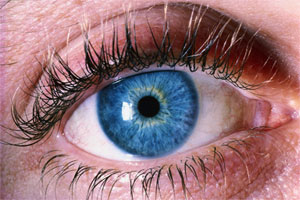 |
| The conference Form & Function in Ocular Disease will explore new frontiers in eye care. |
A generation ago, being afflicted with cataracts meant blurred vision and visual disability.
Although cataract surgery has been performed since ancient times, the last half-century has seen remarkable refinements. Today, cataract surgery is one of the most frequently performed and successful operations throughout the world.
It’s what Balwantray Chauhan, professor of ophthalmology and visual sciences in the Faculty of Medicine, hopes for the treatment of other age-related eye disorders—to achieve the same advances in technology and knowledge that contributed to the miracle of modern cataract surgery.
Those advances are possible with collaboration and communication between medical disciplines. And that’s why he’s working so hard to promote the upcoming conference, Form & Function in Ocular Disease. The multidisciplinary clinical and basic science symposium will take place at ±«Óătv University’s Dentistry Building on September 26 and 27.
Local and international experts
The conference will bring together world leaders in eye care and vision science, including Keith Martin ("protection and replacement of retinal ganglion cells in glaucoma") from the University of Cambridge; Isabelle Brunette ("evolution of corneal endothelial transplantation") from the UniversitĂ© de MontrĂ©al; and Joanne Katz ("the global blindness burden") from Johns Hopkins University. ±«Óătv professors participating in the conference include neurosurgeon Ivar Mendez, neurology specialist Donald Weaver and Alzheimer's expert Kenneth Rockwood.
But Dr. Chauhan says the conference should have a broader appeal across the neuroscience disciplines, as well as to scientists interested in genetics and ethics. Faculty members and students at ±«Óătv are encouraged to attend.
“This is a really unique meeting and it’s free of charge for people to attend,” says Dr. Chauhan. Participants can review the conference program and register on the conference website. “They are welcome.”
Dr. Chauhan says there is urgency to finding solutions to eye disorders, because of the burgeoning numbers of seniors and their associated health problems. For example, the number of people with glaucoma—his area of specialty—is expected to double in the next 30 years as baby boomers reach old age.
But improvements are coming: Wolfgang Drexler from Cardiff University, for example, has developed imaging that allows researchers to examine individual cells in living people in a “completely noninvasive fashion.”
“There are no drops or discomfort for the patient,” says Dr. Chauhan. “We will be able to see individual neurons and test their health and viability.”
“We have the ability to look at structures that we’ve only seen in pathological sections, after a patient dies. Now you can come into the office and have this done without any intervention. It’s truly miraculous.”
Fear lecture
Form & Function in Ocular Disease is officially recognized as the Faculty of Medicine’s Thomas and Alice Morgans Fear Memorial Conference. Dr. Drexler will deliver the 2008 Fear Memorial Lecture, this year entitled "Seeing and Probing Single Cells in the Living Human Retina."
The annual Fear Memorial Lecture is funded through the Thomas and Alice Morgans Fear Memorial Endowment to the Faculty of Medicine at ±«Óătv University which was established in 2005. The endowment funds a renowned international expert to speak at the annual Thomas and Alice Morgans Fear Memorial Conference. The conference is rotated annually among the clinical departments at ±«Óătv Medical School.
LINKS: Ěý´Ą , Faculty of Medicine
